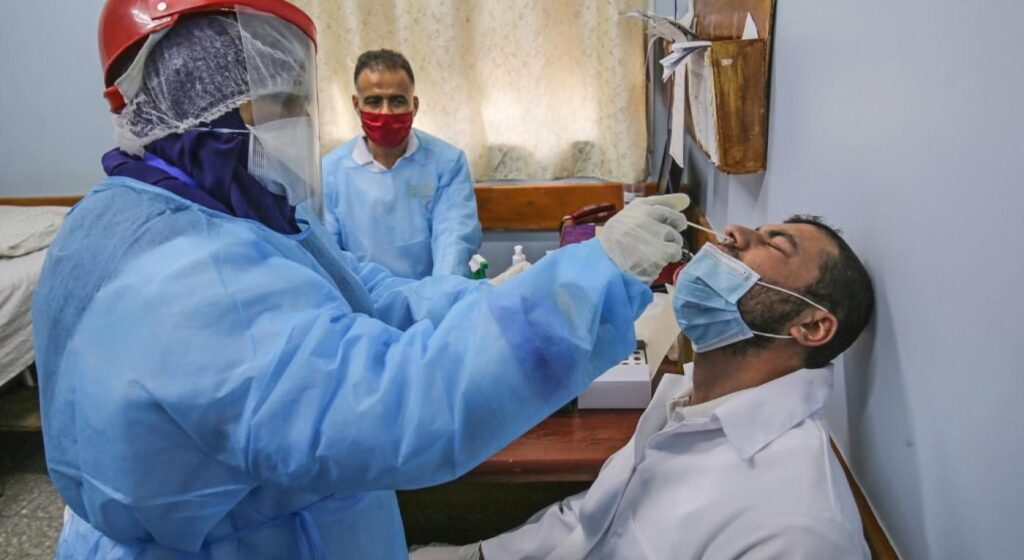Updates & Press
Featured | January 29, 2021
Weekly Humanitarian News Digest – January 29
Author | MedGlobalComms

Each week, we highlight the latest news related to the humanitarian and health crises in our countries of operation: Bangladesh/ Myanmar, Colombia/ Venezuela, Gaza/ Palestinan Territories, Greece, Lebanon, Pakistan, Sudan, Syria, and Yemen. For more frequent updates, make sure to follow us on Facebook, Instagram, and Twitter.
Cover Image: AFP
Latest News for January 22 – January 29, 2021
Bangladesh/ Myanmar
Bangladesh is relocating an additional 3,000 Rohingya refugees to Bhasan Char island despite international criticism. The silt island is vulnerable to flooding and currently holds 3,500 refugees who are not allowed to leave the island. The government plans to move a total of 100,000 Rohingya refugees to the island in order to reduce overcrowding in Cox’s Bazar’s camps. (Al Jazeera)
Colombia/ Venezuela
More than two million people have tested positive for COVID-19 in Colombia since the pandemic began. The actual number of cases is likely higher due to under testing and at least 50,000 people have died from the virus. National and regional health authorities are preparing for the expected arrival of COVID-19 vaccines in February. Frontline health workers and people over 80 will be the first to receive vaccinations. (Colombia Reports)
Gaza/ Palestinian Territories
As of January 25, Gaza has recorded nearly 50,000 cases of COVID-19 and more than 500 deaths. Hospitals in the enclave are overwhelmed with cases and suffer from severe shortages of medical equipment and supplies. Gaza is relying on the World Health Organization and other international organizations to supply vaccines, but has yet to receive any. Several human rights organizations have urged Israel, which currently leads the world in vaccinations, to provide vaccines to Palestinians. (Middle East Eye)
Greece
Soil samples taken from Mavrovouni camp, formerly a military firing range, indicate the site is contaminated with toxic levels of lead. More than 7,000 asylum seekers have been living in the camp for several months after fires destroyed Moria camp in September. According to Human Rights Watch, Greek authorities failed to test the soil before relocating the asylum seekers and have refused to allow independent experts to analyze samples. Residents have also found unexploded ammunition and mortar projectiles. (The Guardian)
Lebanon
The average daily infection rate in Lebanon is now 5,000, a fivefold increase from November. The surge in cases puts immense strain on Lebanon’s health system, which was severely crippled by Lebanon’s historic economic crisis. Beirut hospitals are at 98% capacity and more than 2,300 health care workers have been infected with COVID-19 since the pandemic began. Many health facilities also lack enough oxygen cylinders and ventilators to treat patients. (Associated Press)
Pakistan
The first shipment of COVID-19 vaccines is expected to arrive in Pakistan on Saturday. China has promised to donate 500,000 doses of its Sinopharm vaccine. Pakistan plans to begin vaccinating frontline health workers next week. (Reuters)
Sudan
More than 100,000 people have been displaced in Darfur due to inter-communal violence that has killed at least 250 people, including three humanitarian workers. The violence began on January 15 in West Darfur, two weeks after the joint United Nations-African Union peacekeeping mission there ended. Local health facilities are reportedly overwhelmed with the high number of casualties. (UN News)
Syria
Nearly 21,000 people have tested positive for COVID-19 and 380 have died in northwest Syria. The health sector in the region has struggled to manage the pandemic after 10 years of continuous conflict. According to the Idlib Health Directorate, 54 health facilities have been destroyed since April 2019. Hospitals and isolation centers are also struggling to dispose of hazardous medical waste from COVID-19 patients due to a lack of incinerators. (Syria Direct)
Yemen
Due to humanitarian concerns, the United States has authorized most financial transactions with Ansar Allah for the next month. The group, also known as the Houthis, is in de facto control of territory containing the majority of Yemen’s population. The United States’s recent designation of Ansar Allah as a foreign terrorist organization has created fears about humanitarian access and the ability of civilians to access basic necessities. Yemen relies on imports for 90% of its food supply and is currently on the brink of famine. (CBS News)


